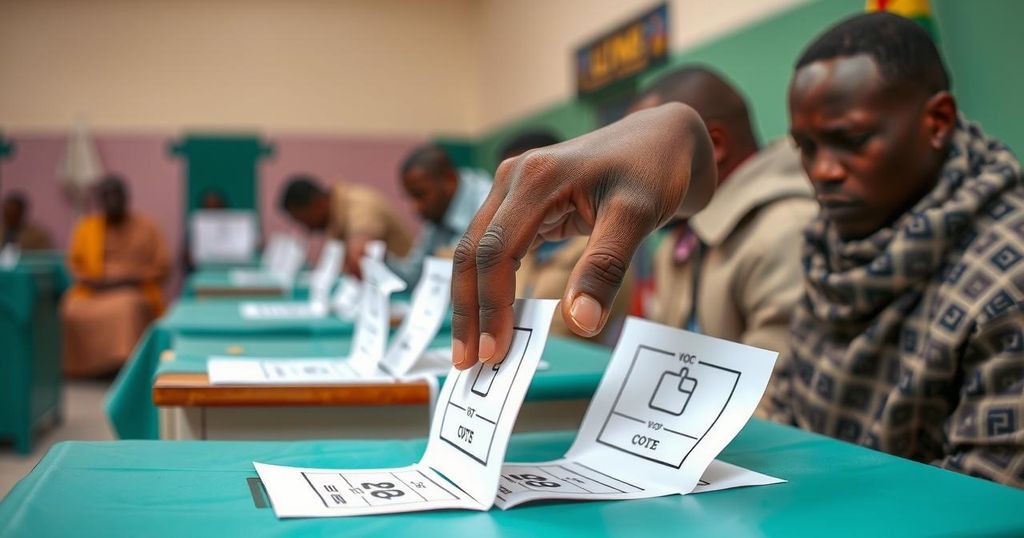Chad’s parliamentary elections have commenced after a 13-year hiatus, but opposition parties are boycotting, citing concerns over legitimacy and predetermined outcomes. Voter turnout is notably low, and allegations of ballot mismanagement have surfaced, while the military government under President Mahamat Idriss Deby pushes for a transition to civilian rule, despite discontent among the populace.
Voting has begun in Chad’s parliamentary election, which marks the first such event in 13 years. This election is seen by the government as a crucial step towards the end of military rule, as citizens are set to elect new representatives for Parliament, provincial assemblies, and local councils. However, opposition groups have called for a boycott, expressing their belief that the elections are predetermined and lack legitimacy. Low voter turnout was observed in the capital, N’Djamena, with officials attributing the lack of participation to adverse weather conditions. In contrast, President Mahamat Idriss Deby Itno urged citizens to vote, describing the day as historic. Opposition leader Succes Masra claimed that results had already been finalized prior to voting. Observers noted that institutional credibility is being compromised by allegations of ballot mismanagement and claims regarding the absence of transparency in the electoral process.
Chad has been under military rule since April 2021 following the death of President Idriss Deby, who had led the nation for 30 years. The current interim president, Mahamat Idriss Deby, aims to project an image of returning to civilian governance through these elections. However, widespread discontent among opposition parties casts doubt on the overall legitimacy of the election process, with accusations of prior manipulation and a restrictive political environment stymying free electoral participation. Thus, while the government views this election as integral to the transition towards democracy, opposition voices challenge its validity, calling for a mass boycott.
Overall, the parliamentary elections in Chad are being conducted amidst a backdrop of skepticism and dissent. The government’s portrayal of these elections as a democratic step is contradicted by a significant opposition boycott, claims of predetermined outcomes, and procedural irregularities. With legitimacy in question and regional instability affecting the nation, the implications of this electoral process extend beyond mere governance, raising concerns about stability and the future of democracy in Chad.
Original Source: www.aljazeera.com






